A 2.5kW solar system is ideal for a small home of about 1 - 3 people with low energy requirements. It can not only help you reduce electricity bills but also ensure a steady power supply to the appliances during brief power outages or blackouts. The energy production of a 2.5kW solar system is impressive, with an average output of 10kWh of electricity per day.
Jackery Solar Generators are portable and powerful charging solutions that can charge most appliances indoors or outdoors. Solar-powered generators like Jackery Solar Generator 2000 Plus and Jackery Solar Generator 3000 Pro are powerful charging solutions that can charge 99% of appliances for hours. This guide will discuss everything about 2.5kW solar systems and why portable solar generators are better if you have less roof space or want an affordable solution.
What is a 2.5kW Solar System?
A 2.5kW solar system can generate a maximum of 2500 watts of electricity at its peak performance or under ideal conditions. It is typically suitable for powering a small to medium-sized household with basic appliances such as lights, microwaves, fans, etc. However, it might not be enough to charge high-power appliances such as large air conditioners. For that, you would need a large-capacity solution like a 4kW solar system.
Components in a 2.5kW Solar System
A 2.5kW solar system includes solar panels, a solar inverter, a charge controller, a battery bank, and wiring. However, the components will depend on whether the 2.5kW solar system is on-grid or off-grid. Let's explain different components briefly and the function of each of them:
Solar Panels: You will need multiple solar panels to get a combined power output of 2.5kW, though the number will depend on the individual panel wattage. The PV panels work by absorbing the sunlight that falls on the surface into DC electricity.
Solar Inverter: The inverter converts the DC electricity generated by the PV panels into AC, which can be utilized to charge home appliances.
Charge Controller: Sometimes, the charge controller is connected to the solar system, which can manage the charging of the battery backup to ensure it does not overcharge.
Battery Bank: For off-grid 2.5kW solar systems, you will need a battery backup to store the excess electricity generated during the day. This will help you ensure the appliances remain charged when the sun isn't shining.
Mounting Structure: If you are considering a rooftop solar system, you will need the mounting structure to securely mount the panels on the roof or ground.
Wiring: The solar system will also need the necessary cables to connect all the components together.

Jackery 2.5kW Solar System
Jackery Solar Generator 2000 Plus and Jackery Solar Generator 3000 Pro are two large home battery backups that can charge 99% of your household appliances. They combine solar panels and portable power stations that collect, convert, and store electricity to power electronics.
Let's explain what each Jackery Solar Generator bundle includes:
Solar Panels: The Jackery SolarSaga 200W Solar Panels are compatible with both Jackery Explorer 2000 Plus Portable Power Station and Jackery Explorer 3000 Pro Portable Power Station to convert the maximum sunlight into electricity.
Battery Backup: The Jackery Explorer 2000 Plus Portable Power Station and Jackery Explorer 3000 Pro Portable Power Station store the electricity generated by the solar panels. They are ideal for charging most household appliances.
Add-on Battery Packs: If you want more power, the Jackery Explorer 2000 Plus Portable Power Station can be expanded from 2kWh to 24kWh with the add-on battery packs.

How Many Panels Are Needed in a 2.5kW Solar System
A typical 2.5kW solar system usually consists of 8 - 10 solar panels, most of which range between 300 - 400 watts per panel. However, the exact number of solar panels needed will depend on the wattage of each solar panel and its efficiency.
How Many Panels in a 2.5kW Solar System
The number of solar panels in a 2.5kW solar system will not only depend on the wattage of each panel but also on the amount of sunlight you will receive. For example, if you choose solar panels with 100W each, then a 2.5kW would require around 25 solar panels. Here are some standard solar panel sizes that could make up a 2.5kW solar system:
- 100W (25 × solar panels to make 2.5kW)
- 200W (13 × solar panels to make 2.6kW)
- 300W (9 × solar panels to make 2.7kW)
- 400W (6 × solar panels to make 2.4kW)
- 500W (5 × solar panels to make 2.5kW)
How Many Batteries Are Needed for a 2.5kW Solar System
The number of batteries required to build a 2.5kW solar system will depend on several factors, such as daily energy usage, backup duration, DoD (Depth of Discharge), and battery capacity.
Let's assume that the 2.5kW generates 10kWh per day, and you need one day of backup power:
Total Storage Needed = Daily Energy Usage ÷ Depth of Discharge = 10kWh ÷ 0.8 = 12.5kWh
If we assume you are using batteries with 5kWh storage capacity, the number of batteries needed can be calculated using the below formula:
Number of Batteries = Total Storage Needed ÷ Battery Capacity = 12.5kWh ÷ 5kWh = 2.5
Hence, you need 3 batteries, each with a 5kWh capacity, to provide 1 day of backup for a 2.5kW solar system with an 80% DoD.
2.5kW Solar System Cost
In the USA, a 2.5kW solar system with battery backup typically costs significantly more than a 2.5kW PV-only system, with the battery addition often adding between $5,000 and $10,000 to the overall price.
How Much Does a 2.5kW Solar System Cost
According to the data from the US Solar Photovoltaic System and Energy Storage Cost Benchmark Report by NREL (Q1 2023), the 2.5kW solar system costs $7250. After deducting the 30% federal tax rebate, the price will be reduced to $6700. However, the cost might vary depending on factors like location, panel quality, type of inverter, and installation costs.
2.5kW Solar System With Battery Backup Price
In the USA, a 2.5kW solar system with a battery backup typically costs between $9,000 and $12,000 installed, depending on the battery size, brand, and location. The battery component alone adds around $5,000 to $7,000 to the cost of a standard 2.5kW solar system.
Based on NREL data, the 2.5kW solar system with battery backup costs $11,750, including the 30% tax rebate offered by the federal government.
On the other hand, Jackery Solar Generators are portable solar-powered generators that are much more affordable. They combine foldable solar panels and portable power stations to ensure appliances remain powered during off-grid living, emergencies, and even outdoor adventures.
How Much Does Jackery 2.5kW Solar System Cost
Jackery offers many solar generators with a capacity ranging from 2000W to 3000W, though there are also high-capacity models available. Let's briefly explain each bundle below:
Jackery Explorer 2000 Plus + 2*SolarSaga 200W Solar Panels = $3,299
The Jackery Solar Generator 2000 Plus bundle is ideal for those looking for a reliable home battery backup or a portable charging solution for outdoor adventures. It can supply uninterrupted electricity to 99% of the household or outdoor appliances, such as refrigerators, lights, fans, etc.

Jackery Explorer 3000 Pro + 2*SolarSaga 200W Solar Panels = $3,999
The Jackery Solar Generator 3000 Pro is another solar-powered generator that can charge most household appliances for long hours. It features a pull rod and double wheels that ensure easy maneuverability, making the solar generator ideal for outdoor adventures such as RV trips.

Jackery Explorer 3000 Pro + 2*SolarSaga 200W Solar Panels + Transfer Switch = $4,199
If you aim to buy a solar generator for long-term power outages or blackouts, you can consider going ahead with the bundle. The Jackery Manual Transfer Switch helps you connect the solar generator with the home's electricity system for seamless switching from the utility grid to battery backup.

Jackery Explorer 3000 Pro + 4*SolarSaga 200W Solar Panels = $4,799
The bundle includes four solar panels that can charge the portable power station faster. Whether you live in an area that faces frequent power outages or often plan outdoor trips, the portable solar grid has got your back.

Tax Rebate for Solar Power
If you install a solar panel system anytime from 2022 through 2032, you will earn 30% of the costs of a qualified clean energy property through the Residential Clean Energy Credit. The Jackery Solar Generator 3000 Pro qualifies for a tax rebate of up to $839.7, which reduces the overall cost of the product. Here's the list of products with available tax rebates:
- Explorer 5000 Plus: Up to $1049.7 in Rebates
- Solar Generator 5000 Plus: Up to $1049.7 in Rebates
- Explorer 3000 Pro: Up to $839.7 in Rebates
- Explorer 2000 Plus Double Kit: Up to $1,289.7 in Rebates
- Explorer 2000 Plus Kit (4kWh): Up to $1,139.7 in Rebates
- Explorer 2000 Plus Kit (6kWh): Up to $1,589.7 in Rebates
- Solar Generator 3000 Pro: Up to $839.7 in Rebates
- Solar Generator 2000 Plus (4kWh): Up to $1,139.7 in Rebates
- Solar Generator 2000 Plus (6kWh): Up to $1,589.7 in Rebates
For more information, you can refer to the Jackery Residential Clean Energy Credit page.
How Much Power Does a 2.5kW Solar System Produce
A 2.5kW solar system will generate approximately 2500 watts of electricity per hour at peak sunlight and optimal conditions. However, the actual amount produced will depend on various factors, such as weather, panel efficiency, and the time of day. For example, if the sunlight intensity is high and the panels are more efficient, more power is generated.
Here's a detailed breakdown of how much power a 2.5kW solar system produces per day, month, and year:
Daily Power Output
When the 2.5kW solar system receives 5 hours of sunlight, and the efficiency rate is 80%, the daily power output can be calculated as follows:
Daily Power Output (kWh) = System Size * Peak Sun Hours * Efficiency Rate = 2.5kW * 5H * 80% = 10kWh per day
However, in winter, the peak sun hours will be reduced significantly. For example, if the area receives only 3 hours of sunlight, the daily power output will be 2.5kW * 3H * 80% = 6kWh per day.
Monthly Power Output
Multiply the daily power output by 30 to calculate the monthly power output of the 2.5kW solar system.
Monthly Power Output (kWh) = Daily Power Output * 30 = 10kWh * 30 = 300kWh per month
The monthly power output in winter with three hours of peak sunlight will be 6kWh * 30 = 180kWh per month.
Annual Power Output
Multiply the daily power output by 365 to calculate the annual power output of the 2.5kW solar system.
Annual Power Output = Daily Power Output * 365 = 10kWh * 365 = 3,650kWh per year
The annual power output in winter with days receiving three hours of sunlight will be 6kWh * 365 = 2,190kWh per year.
If you want to calculate the power output of 2.5kWh in your location, you can input the area in the PV Watts calculator, enter the size of the solar system, and automatically get the average power output per day, month, and year.
Note: The calculations are based on ideal conditions, and the actual performance might vary based on real-world factors such as solar angle, weather, location, peak sunlight hours, and more.
What Can a 2.5kW Solar System Run
A 2500-watt generator is a midsize charging solution that can charge small to midsize appliances such as coffee makers, TVs, kettles, lights, fans, refrigerators, etc. It is suitable mainly for low-energy users with 1 - 3 people.
Will a 2.5kW Solar System Run a House?
A 2.5 kW solar system may be able to power a small house with moderate energy usage, but it likely won't be enough to fully run a typical household with high-energy appliances like air conditioning, especially if you want to power the entire house throughout the day. Depending on energy consumption, a system closer to 3kW or higher would be recommended for most houses.
How Many AC Can 2.5kW Run?
Depending on the AC's efficiency and usage patterns, a 2.5kW power source can typically run one small to medium-sized air conditioner (around 1-1.5 tons). For example, a 1-ton AC requires 1200 to 1500 watts of electricity and can be easily charged with the 2.5kW solar system for some time. A 1.5-ton AC requires 1500 to 1800 watts of electricity per hour when running at full capacity, so you can charge the appliance for a few hours.
2.5kW Off-Grid Solar System
The 2.5kW off-grid solar system uses solar panels and a portable power station that works entirely independently from the utility grid. It is ideal for those traveling or working in remote locations with no nearby electricity outlet and for those who often plan short or long RV trips.
Jackery 2.5kW Solar Generator
The Jackery Solar Generators are ideal for home backup, emergencies, and outdoor adventures. They can not only charge most of the appliances but are also portable in nature. When you register for Jackery membership for the first time, you will receive a $200 off coupon as a welcome gift. We will also share more promotional offers so you can save more on the investment in the solar generator.
Jackery Solar Generator 2000 Plus
If you are looking for a home battery backup solution that can double as an outdoor solar generator for RV or camping trips, you can consider the Jackery Solar Generator 2000 Plus. It has a large battery capacity that can supply safe and stable electricity to 99% of your appliances, such as refrigerators, CPAP machines, lights, etc. It's also built with a pull rod, double wheels, and a foldable handle to improve maneuverability.

Customer Review
“This is the second generator we have bought, and we love it. This one is in our cabin. It's easy to use, and it's nice that it is totally silent. I will recommend this to everyone.” — Karon Owen.
Jackery Solar Generator 3000 Pro
The Jackery Solar Generator 3000 Pro is a whole-home battery backup solution that can charge 99% of indoor or outdoor appliances for hours. With the help of the Jackery Manual Transfer Switch, you can connect the portable power station to the home's electricity system for quick switchover from the utility grid to the battery backup. This ensures essential appliances, such as refrigerators, lights, CPAP machines, and garage doors, remain powered when an unexpected power outage occurs.

Customer Review
“The power source performs to spec: great output, rapid re-charging, predictable performance, and easy to maneuver. With the solar panels, I now have complete peace of mind that I'll forever have power for my most important items in all situations.” — William Nowacki Jr.
|
Product |
Output |
Capacity |
Appliances |
|
Jackery Solar Generator 2000 Plus |
3000W (6000W Peak) |
2042.8Wh |
Mini Freezer (150W) = 11.5H Electric Kettle (500W) = 3.4H Electric Blanket (100W) = 17.3H Space Heater (1000W) = 1.7H Lights (40W) = 43.4H |
|
Jackery Solar Generator 3000 Pro |
3000W (6000W Peak) |
3024Wh |
Refrigerator (300W) = 8.5H Water Heater (1800W) = 1.4H Heating Pad (150W) = 17.1H Electric Kettle (500W) = 5.1H Outdoor Grill (1000W) = 2.5H |
Conclusion
A 2.5kW solar system can help you reduce your electricity bills and even ensure you can safely charge the appliances during outdoor adventures. It is usually light in weight, so you can move the solar system anywhere you go. However, before investing in the solar system, it is essential to understand your power requirements and what appliances you would like to charge at the same time.
Jackery Solar Generator 2000 Plus and Jackery Solar Generator 3000 Pro are large-capacity solar-powered generators that can charge most household or outdoor appliances for long hours, helping you cut down on electricity bills. Do you have any questions about what size generator will meet your needs? Let us know in the comments below!

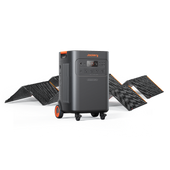


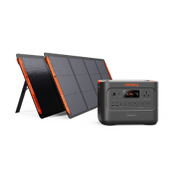













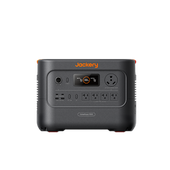













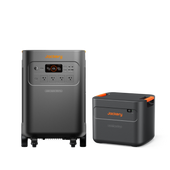
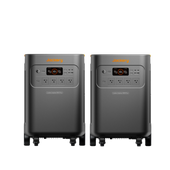
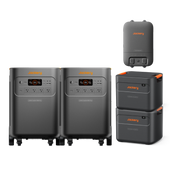





![[Add-on] Jackery Manual Transfer Switch for Explorer 5000 Plus](http://www.jackery.com/cdn/shop/files/800x800-2_5b90d3ab-246e-4679-affe-e7c6949f9c27.png?v=1744356904&width=170)
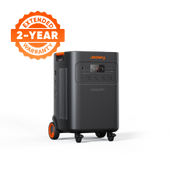

































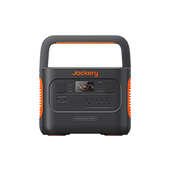








































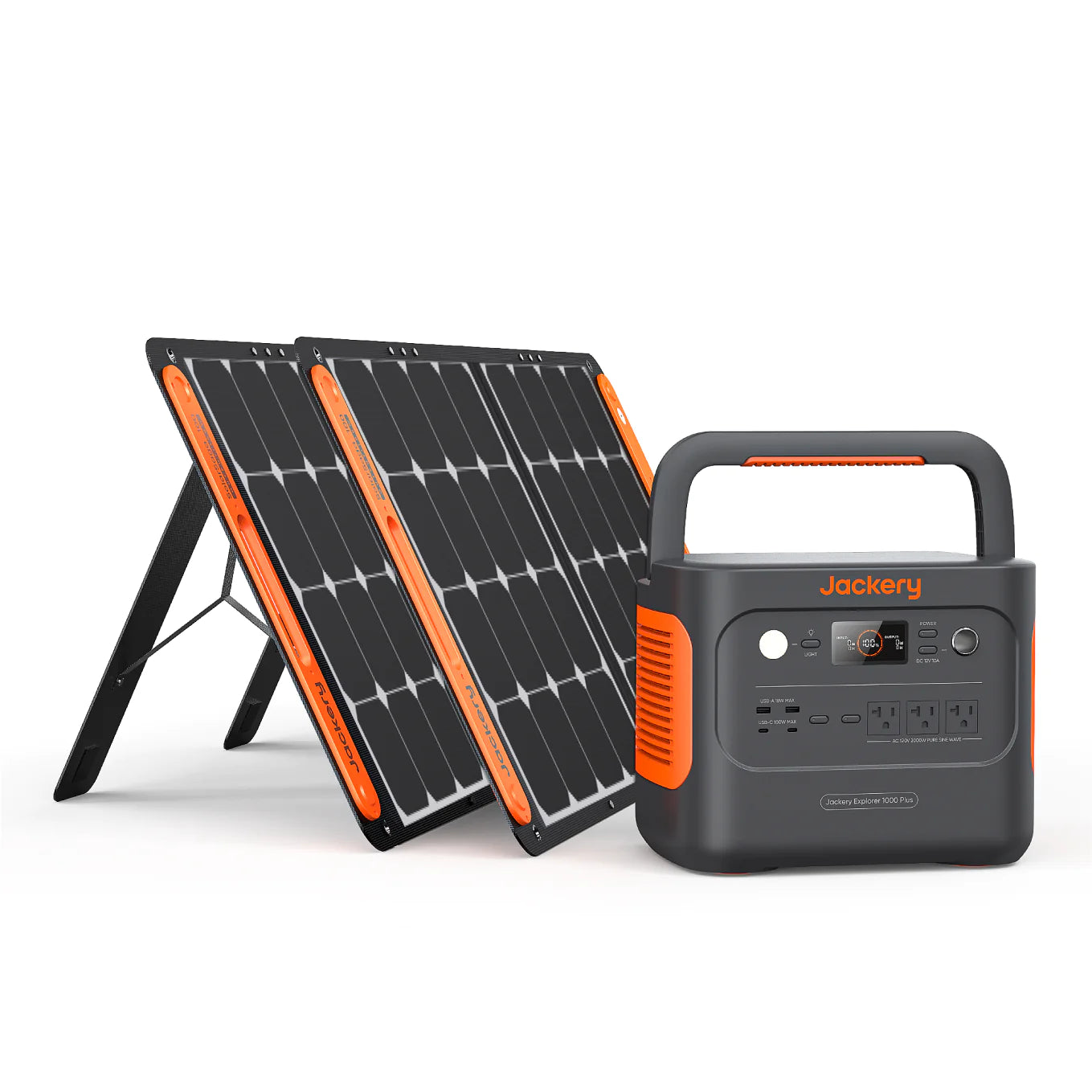




Leave a comment